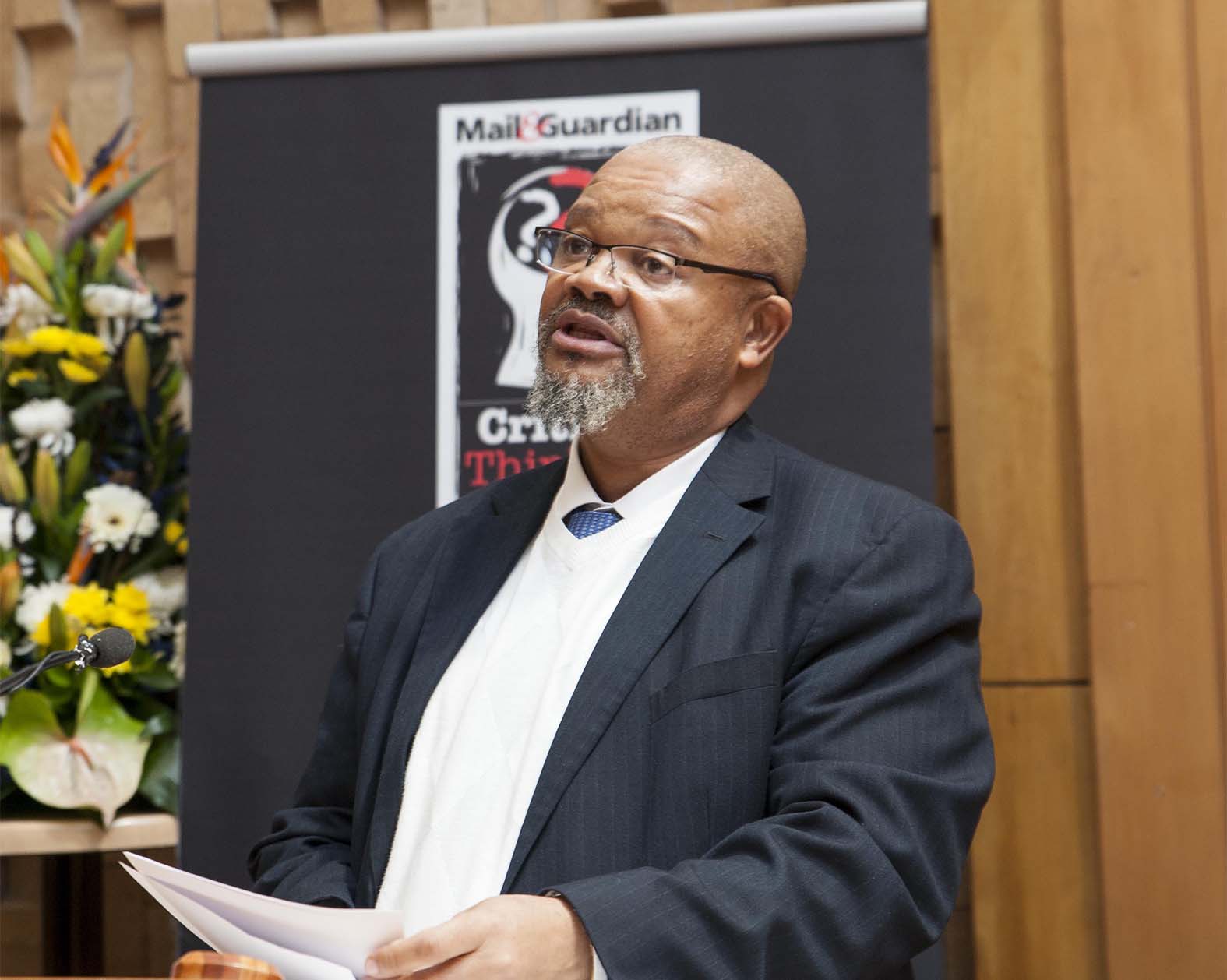The Unisa-Mail & Guardian Critical Thinking Forum held on June 29 2016 at Unisa.
Very clear messages about the desperate need for ethics and morals at all levels of society, from family to business and government, emerged at the Unisa-Mail & Guardian Critical Thinking Forum on ethical leadership, held at Unisa’s ZK Matthews Great Hall in Pretoria on June 29.
The event hosted leaders from the business and ecclesiastical communities, parastatals and labour and student formations.
Opening the panel discussion, Unisa’s principal and vice-chancellor Professor Mandla Makhanya stressed the need for enlightened thinking.

Unisa’s principal and vice-chancellor Professor Mandla Makhanya
“The Education White Paper 3 (1997) asserts that critical thinking is demonstrated in forward thinking reflection, as well as the evaluation, analysis and renewal of current knowledge and the production of new knowledge, in an environment of tolerance and for the public good,” said Makhanya.
“This responsibility is extended to students, who must, according to a 1998 Unesco report, be able to speak out on ethical, cultural and social problems completely independently and in full awareness of their responsibilities, exercising the kind of intellectual authority that society needs to help it to reflect, understand and account. They must also play a role in helping to identify and address issues that affect the wellbeing of communities, nations and global society.”
Critical citizenry
Makhanya highlighted that the intellectual community is similarly tasked to “promote the spirit of tolerance towards different views and positions and enhance democratic debate and discussion” — a comment extracted from the Kampala Declaration of 1990.
“The call from the national and global agendas is clear. We are all exhorted to be active members of a critical citizenry. While this is not new for the higher education sector, we don’t seem to be doing so well. As far back as 1997, South Africa’s department of education asserted that higher education has an unmatched obligation, which has not been adequately fulfilled, to help lay the foundations of a critical civil society, with a culture of public debate and tolerance that accommodates differences and competing interests.
“It has much more to do, both within its own institutions and in its influence on the broader community, to strengthen the democratic ethos, the sense of common citizenship and commitment to a common good.”
Makhanya stressed the need to contribute to thought leadership and critical dialogue through critical thinking forums designed to promote discussion on matters central to the national discourse.
Premium discussions
“Our aim is not only to engage in constructive thinking and debate — it is also to harness our creativity, innovation and ingenuity by tapping into and sharing new and alternative perspectives on our current context.
“To do this we have crafted a programme of premium discussion forums comprising commemorative lectures and high-profile institutional events, such as the Africa Day lecture and Africa Speaks conversations, and the round-table discussions and special events hosted by the office of the principal and vice-chancellor, as well as those hosted by institutes such as the Institute of African Renaissance Studies, the Thabo Mbeki African Leadership Institute, the Institute for Global Dialogue and the Institute for Social and Health Studies.
“This programme, we believe, will harness through thoughtful engagement, our collective critical thinking abilities and responsibilities, in service of the best interest of our society and our country.”
In line with the call to establish a culture of public debate and tolerance, Makhanya said that the Mail & Guardian was chosen as co-host due to its focus on investigative and credible journalism, citing it as the ideal media partner to facilitate Unisa’s position as an institution renowned for academic and thought leadership.
“These forums are tested platforms, which constitute a perfect arena for convergence,” he concluded.
A crisis of values
South Africa’s transition to democracy requires that all existing practices, institutions and values are drastically rethought in terms of their fitness for this new era.
South Africa is currently gripped by a leadership and moral crisis. Hardly a day goes by without reports of unethical and corrupt conduct in the public and private sector alike. Issues such as Nkandla, the SABC once more becoming a government propaganda machine, the Panama Papers exposé and concern about the rampant, unsustainable extraction of minerals, indicate that the country faces huge moral and ethical challenges.
Higher education plays a pivotal role in the cultural, social and economic development of modern societies. South Africa needs to transform its higher education system to meet pressing national needs and respond to new realities and opportunities.
There must be the development of a learning society, which can stimulate, direct and mobilise the creative and intellectual energies of people towards meeting the challenge of reconstruction and development.